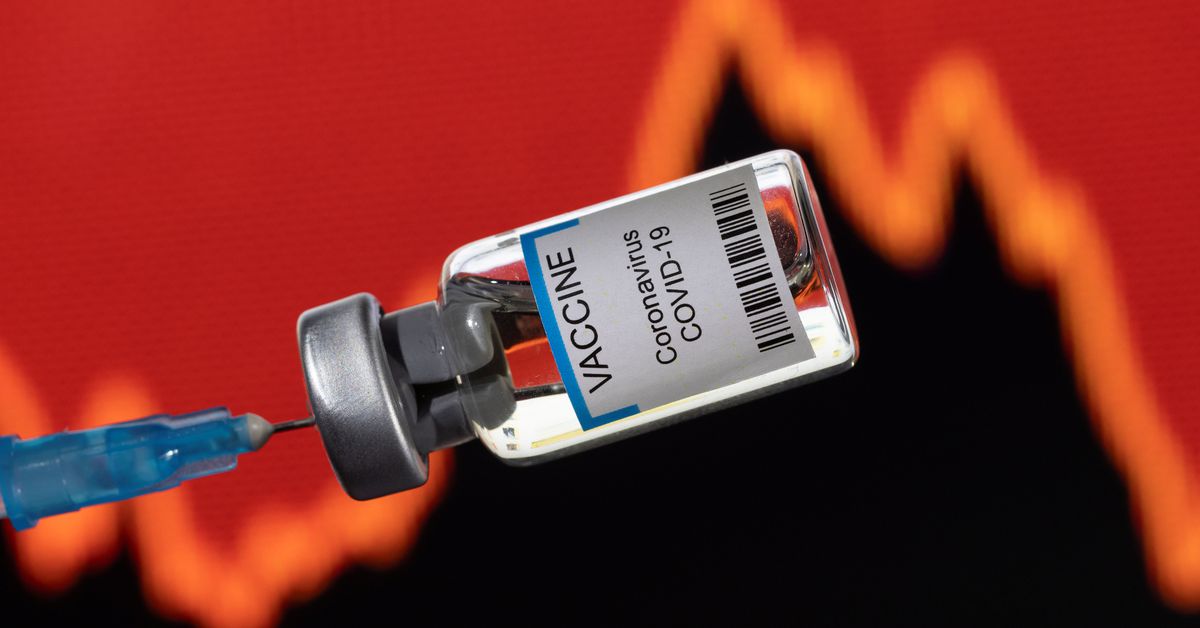- cross-posted to:
- world
- [email protected]
- health
- news
- cross-posted to:
- world
- [email protected]
- health
- news
NEW YORK, Aug 14 (Reuters) - A new COVID vaccine is due out next month, but health experts and analysts say it is likely to be coolly received even as hospitalizations from “Eris”, a variant of the Omicron form of the coronavirus, rise around the country.
Some public health experts hope that Americans will welcome the new shot as they would a flu jab. But demand for the vaccine has dropped sharply since 2021 when it first became available and more than 240 million people in the U.S., or 73% of the population, received at least one shot.
In the fall of 2022, by which time most people had either had the COVID virus or the vaccine, fewer than 50 million people got the shots.
Healthcare providers and pharmacies such as CVS Health (CVS.N) will start next month to offer the shot, updated to fight the Omicron version of the virus that has been dominant since last year.
They will be fighting declining concern about the virus, as well as fatigue and skepticism about the merits of this vaccine, Kaiser Family Foundation Director of Survey Methodology Ashley Kirzinger said.
“Public health officials, if they want to see a majority of adults get these annual vaccines, they’re going to have to make the case to the American public that COVID isn’t over and it still poses a risk to them,” Kirzinger said.
The top reason vaccinated people gave in KFF surveys earlier this year for eschewing annual shots was they believed they had protection from the virus because of previous shots or infections, she said.
COVID-19 vaccine makers have pared back expectations for this fall’s vaccination campaign, with Pfizer – the largest maker of mRNA shots with BioNTech – recently warning that it might need to cut jobs if it does not do well. Its biggest rival, Moderna, conceded demand could be as few as 50 million shots.
Last year, Pfizer and Moderna’s vaccine sales topped $56 billion worldwide; analysts project around $20 billion for this year.
Jefferies analyst Michael Yee said he does not expect the autumn campaign to reach last year’s.
“Take a look at what happened last winter. It was 50 million in the US, and it seems likely to be lower than that, given that there’s less concern about COVID this year than last year,” Yee said.
POST PANDEMIC VACCINE
The COVID public health emergency ended in May and the government has handed much of the duty of vaccinating America to the private sector. Over 1.1 million people in the United States have died from COVID, according to the U.S. Centers for Disease Control and Prevention (CDC).
CDC Director Mandy Cohen said last week in a podcast that she expects the shots - which still need to be authorized by the U.S. Food and Drug Administration and recommended by the CDC - to be rolled out in the third or fourth week of September. She suggested Americans should view these shots as an annual measure to protect oneself, in line with the annual flu shot.
As with the flu, Pfizer (PFE.N)/BioNTech SE (22UAy.DE), Moderna (MRNA.O) and Novavax (NVAX.O), have created versions of the COVID vaccine to try to match the variant they believe will be circulating this fall. The shots are aimed at XBB.1.5, a subvariant that is similar to EG.5 and also a sub-lineage of the still dominant Omicron variant.
COVID-19 related hospitalizations are up more than 40% off of recent lows hit in June, but are still more than 90% below peak levels hit during the January 2022 Omicron outbreak, according to CDC data.
THE EVIDENCE
Some doctors suggest that annual shots should be targeted at the elderly and other high risk people, who are most likely to have dire outcomes if they catch COVID-19.
Dr. William Schaffner, an infectious diseases specialist at Vanderbilt University and a liaison to the CDC’s Advisory Committee on Immunization practices, said it is possible that the ACIP could make a weaker recommendation for younger, healthier people. That could also affect demand.
“Should children really receive this booster?” Schaffner said. “Should the average person with no underlying illness who is a younger adult receive this vaccine or should this vaccine now be a more targeted vaccine?”
The CDC recommended children get a single dose of last year’s updated vaccine for those aged 6 and older.
Dr. David Boulware, an infectious diseases specialist at the University of Minnesota, said that according to research he has published, people who are boosted have less severe symptoms for a shorter duration.
“When you look at what you can do to reduce your duration of illness, even if you do get sick, being boosted is going to be the best way to do that,” he said.



I’m anticipating that my employer will make it a yearly mandate along side the flu vaccine. I’ll wait until then.